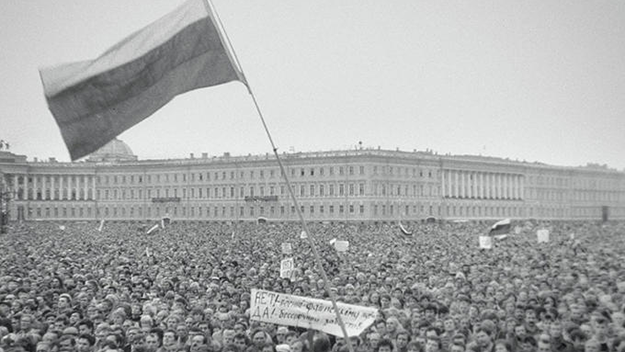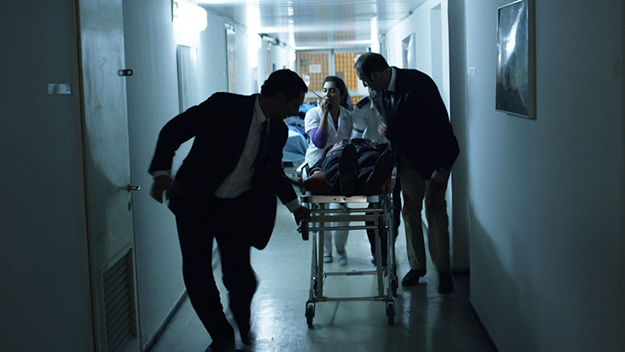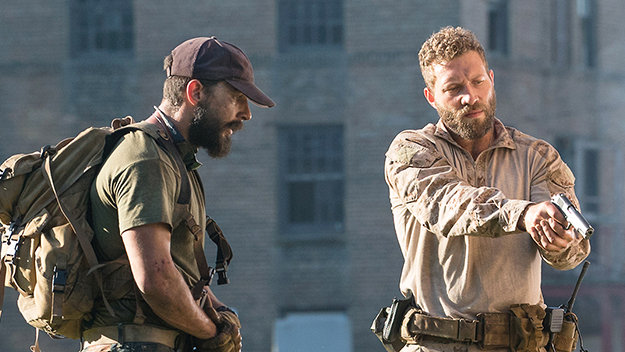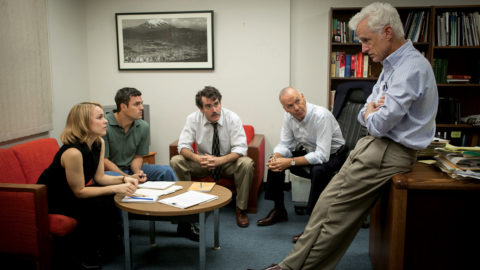Festivals: Venice

In Jackson Heights
Like so many of Frederick Wiseman’s films, In Jackson Heights aspires to present a more faithful reflection of the United States. It’s more diverse than most portraits we are offered in contemporary cinema, and more in tune with political and economic pressures on a very pragmatic level. Part of that is due to the demographics of Wiseman’s latest subject, a New York City neighborhood that boasts over 100 nationalities cohabitating in relative harmony, but part of the impression also comes from the filmmaker’s evident desire to show the country as a pluralistic place of possibility energized by immigrants and defined by the potential for positive democratic change. However you view it, the film is an act of portraying history, in especially fresh and vivid form.
Perhaps seeing Wiseman’s film very early on in my visit to the Venice Film Festival gave me a perspective I never quite shed, because the practice and process of recounting history was central to so many selections there. Amos Gitai’s Rabin, The Last Day retraces the run-up to and the aftermath of the Israeli Prime Minister’s assassination on November 6, 1995, through reenactments and television footage. In Francofonia, Aleksandr Sokurov weaves together a few strands of his oeuvre (both fiction and nonfiction) to plumb the identity and import of the Louvre Museum, and of art generally, by reference to the Louvre’s survival in World War II thanks to a special Franco-German arrangement. There was even alternative-universe history, in Childhood of a Leader, an origin myth for the archetypal 20th-century fascist dictator, boasting the title of a case study and a conceit that takes the child-is-the-father-to-the-man apothegm to new extremes.

The Event
Another world premiere at Venice, The Event, took on history quite literally through its very material. Sergei Loznitsa’s snapshot of St. Petersburg during the attempted Communist coup in August 1991 was fashioned from footage shot at the time by a strikingly alert and curious Soviet camera crew (or, surely, more than one?). You feel something is in the air in the city then known as Leningrad; as the camera roams the streets, people mill about listening to speeches, looking confused and interested, giving speeches, building barricades, and processing the paradigm shift. It’s a privileged peek at a transition captured on film, from an era long overshadowed by the jaw-dropping aftermath of the USSR’s dissolution (look for Putin making an appearance here…). In the movie’s coda, Leningrad’s records office is sealed for posterity, and it’s as if Loznitsa’s film is breaking the seal. Its complex audio collage simulates the chatter of history happening, with ambient street noise and talk, radio broadcasts, speeches, song, and more. The clear black-and-white images make for a ripe contrast with the heroicizing color wide shots of Loznitsa’s Maidan, though there’s a similar Battle of Chile sense of spontaneity. As Communist rule enters its death throes, the people on screen are left to contemplate what the future might or should be, and it’s like seeing the lights turned suddenly on after darkness.
If Loznitsa works with the inherited spontaneity of found footage, Sokurov attempts his own sort of collage, with bigger swatches of fabric, in Francofonia. The uncompromising, enveloping mood and technique of Sokurov’s films already gives them a vivid authorial presence, but here especially the extensive use of the director’s voiceover makes it feel like a journal of opinions, observations, and dream fragments. The product is an at times misshapen assemblage of his musings, scenes about Louvre director Jacques Jaujard and art-loving German officer Count Wolff-Metternich zur Gracht, assorted other historical vignettes and personages, and curious dramatic interludes involving a ship carrying a cargo of art on treacherous high seas. Concerned with the survival of art and craftsmanship as vital counterpoint to other human endeavor, it’s tempting to view the feature as a highly intellectualized yet urgent dispatch from an artist in Russia.

Rabin, The Last Day
Covering a more recent Event with a capital E, Rabin, The Last Day provides an ever-trenchant reminder of how Yitzhak Rabin’s assassination grew out of implacable religious extremism fundamentally at odds with a political modern democratic conception of the Israeli state. Opening with a long interview excerpt, the film cycles back and forth between reenactments of preparations by Jewish radical Yigal Amir, and the postmortem investigation conducted by a commission. Gitai creates a timely if exhausting record with a clarity that seems to seek some order after the Sisyphean action-reaction chain of events that followed in the 20 years since, though one wishes he didn’t drawn out every other dramatic scene for two or three beats longer than necessary.
Not every film at Venice confronted epoch-defining moments. In El Clan, Pablo Trapero digs into the tabloid tale of the 1980s Buenos Aires family whose patriarch ran a brutal kidnapping racket (and one of whose sons was a soccer star). The vision of his wife and children putting up with a screaming kidnap victim under their own roof yields a ready-made allegory for the entanglement of coercion and complicity enforced by a military dictatorship. But it’s also quite satisfying as a dramatic, digestible thriller, laced with dread. Entertaining in quite another way was Luca Guadagnino’s new film, A Bigger Splash. Tilda Swinton and Matthias Schoenaerts play a rock star and her husband on a vacation retreat in Italy, their idyll cracked wide open by a loudmouth music producer (Ralph Fiennes), the old flame of Swinton’s rocker. He brings his footloose daughter (Dakota Johnson)—the film’s origins lie in the previously adapted novel La Piscine. Fiennes is bracingly brash and obnoxious in this boisterous drama of middle-aged romantic gamesmanship and self-mythologizing. It’s about as subtle in seeking effects as I Am Love but entertaining in its own right.

Man Down
Turning to the future: Equals stars Kristen Stewart and Nicholas Hoult yearning for each other in an antidepressant dystopian future. While it’s heartening to see Stewart making a go of the airless surroundings, which seek out classical romantic restraint in high-tech circumstances, the film just never quite ignites, and Drake Doremus’s derivative visual design is debilitating, echoing Apple ads of the distant and recent past. Differently maligned, Dito Montiel’s Man Down envisions a postapocalyptic America stalked by Shia LaBeouf as a surviving GI. But what sounds (and often is) faintly ridiculous actually gets some credit for searching for new ways of conveying trauma, one of which is LaBeouf’s on-edge performance.
Sampling the Venice Classics of restorations and revivals, I caught a screening of Hardly a Criminal—a 1949 Argentine noir by sometime Hollywood director Hugo Fregonese about a thieving bank employee who endures jail time because he knows where the loot is stashed. While lacking the snap of American counterparts, its laying bare of masculine pride and familial shame was hard to shake. Which brings us to the prize-winning Anomalisa, confoundingly dubbed “a cute piece of Capra corn” by a colleague with whom I must respectfully disagree. The much-anticipated animated feature merits a repeat viewing (after more sleep), but suffice to say that Charlie Kaufman and collaborator Duke Johnson go for it, using outwardly distancing puppet-like characters to enter a fracturing male ego. If that doesn’t sound wholly endearing, it’s not supposed to be—and that’s a good thing.





